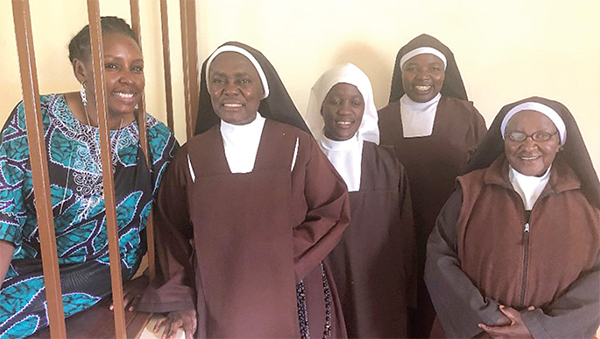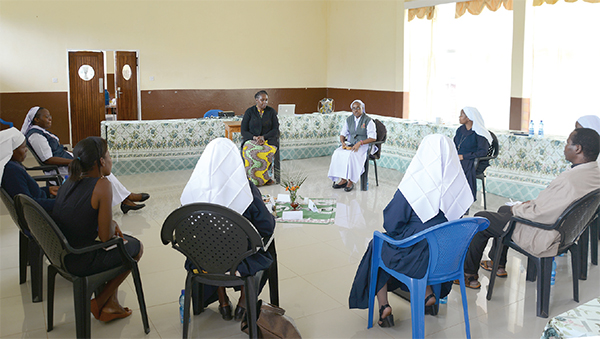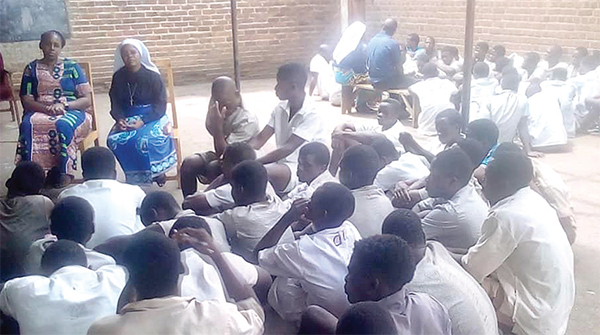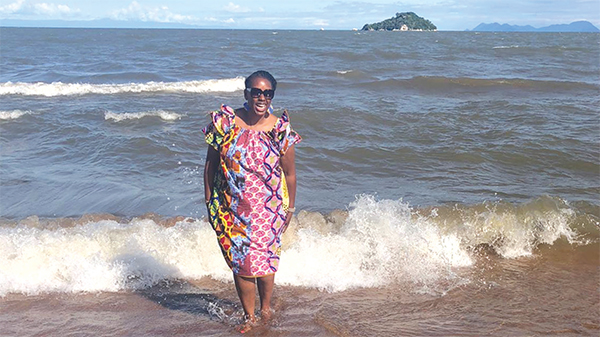Malawi was previously known as Nyasaland and is located in the southeastern part of the African continent, surrounded by Zambia, Mozambique and Tanzania. It was colonized by the British and its official languages are English and Chichewa, although many other dialects are spoken. Malawi is approximately the size of Pennsylvania with a population of slightly under 19 million.
This was my first trip to Malawi and what struck me first was the heat and the humidity. I left the U.S. on February 21, wearing a winter jacket, and landed in Blantyre (second largest city) on February 22 in the early afternoon to bright sunlight and extremely high temperatures. Zomba Diocese is about an hour from Blantyre and later that evening, we drove up Zomba plateau to have dinner in a much cooler environment that required a light sweater or throw. The varied landscape in a relatively small geographical area is one of the many special things about the area. Lake Malawi, which is shared by other countries, is also home to the chambo breed of fish. This is the only place in the world where one can find this fish, which is similar to tilapia but has a different flavor — and is much tastier in my opinion.
On Monday, February 24, we began the workshop with a majority of religious women as participants, using the circle process but also a few lecture-style sessions to talk about reconciliation and how reconciliation can be streamlined into different ministries. We had beautiful liturgy each day with very moving songs in Chichewa, and every evening we would have a social after dinner to get to know one another better. As the days were drawing to a close, the question of “What next?” kept arising, because the participants were eager to start practicing reconciliation. I had been struck at the presence of a number of large prisons in this relatively small diocese, and I suggested that perhaps reintegration of returning citizens could be something they could explore. This was received with enthusiasm and so the decision was made to visit a male juvenile prison on the last day. The bishop helped us to arrange for that in a very short amount of time, and the next day we pooled some money to buy some food donations and set out to the prison. We then did modified circles with the incarcerated young men, where some asked for help with reconciliation and reintegration processes with their families and communities as they prepared to be released. It was a moving experience for all of us, especially seeing the very poor living conditions in which they had to serve their time but also hearing firsthand how a slow criminal justice system and corruption were causing a lot of harm to young men from poor economic backgrounds. The participants formed a group to plan how they would undertake this work locally and also nationally through networking with religious and clergy throughout the country. My hope is that it grows into a ministry that encompasses all the prisons in Zomba.
I spent my final days visiting different religious houses and ministries to get a better understanding of what the bishop (who is relatively new to his position) is trying to achieve, part of which has been inviting new religious communities from different countries to establish missions there. I was delighted to spend a morning with cloistered Carmelite nuns, a good number of whom are from Kenya. I returned on March 7 and soon after the world started shutting down due to COVID-19.
Story by Sister Mumbi Kigutha



 Top, Sister Mumbi with Cloistered Carmelite Nuns; second, workshop participants in session; third, visit to the male juvenile prison; bottom, Sister Mumbi on the shore of Lake Malawi; contributed photos.
Top, Sister Mumbi with Cloistered Carmelite Nuns; second, workshop participants in session; third, visit to the male juvenile prison; bottom, Sister Mumbi on the shore of Lake Malawi; contributed photos.




